
Moments In Gaming 2013: Part 2 - The Serious & The Story
In part two, we’ll take a serious look at how the industry changed and progressed, by looking at the growth of narrative within games and what happens on the the darker side of the internet.
Phil Fish Exits Games Cancelling FEZ 2

The words of a man on the edge, the edge of what is something that is yet to be decided by most people.
Phil Fish was thrown into stardom as a popular indie developer after his starring role in the documentary ‘Indie Game: The Movie’’, as the creator of the critically acclaimed indie puzzle game, FEZ. Phil always made his opinions on the industry very public and his hatred for anyone who acted like he owed them anything; although to most it may have seemed as if he was fishing for trolls, if you’ll forgive the pun.
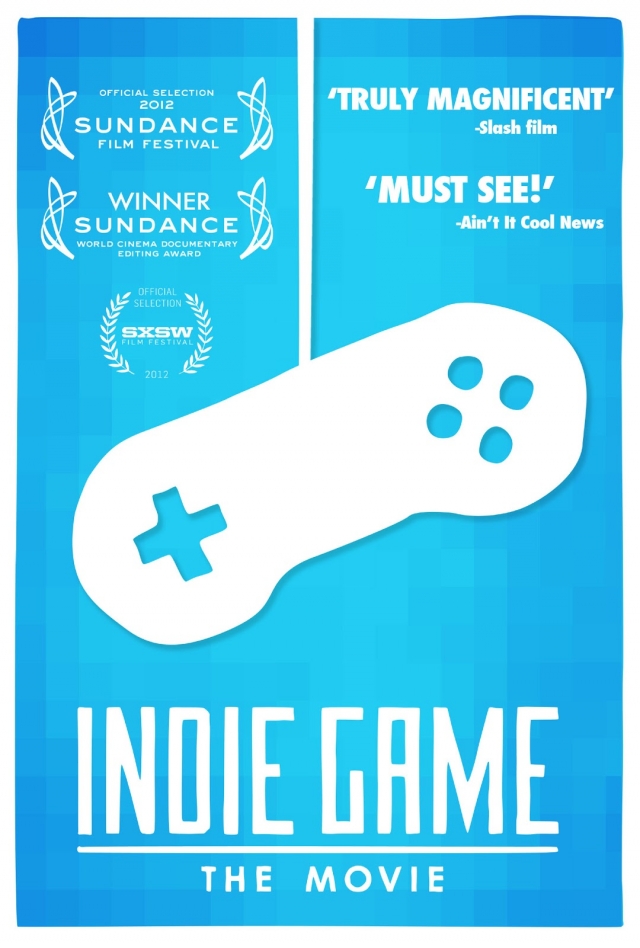
To everyone's dismay, Fish’s flagrant disregard for the unwritten rules of the internet played straight into the hands of the waiting trolls, time and time again. As hilarious as this could sometimes be, Fish decided he’d had enough on July 27th when he had a row with a ‘journalist’, and felt it was time to get out while he still could.
This is something I myself did a lot of reading about at the time. I was a fan of Fish and his thoughts on always fighting back and the idea that the creator of something does not owe anything to someone purchasing, enjoying or critiquing it. This was a very interesting concept. Sure, he wasn’t the first person ever to think this, but Fish did seem to show how self-centred gamers had become. The irony that the very thing he fought against and detested so completely was the reason for his eventual downfall, appeared to be lost on those who were part of it.
Essentially, a very talented man left his livelihood because a group from within our own community berated him constantly, making his life hell. Yes, he could have quit social networks and yes, he could have just plain ignored these people, but the chorus of hate was just too much. It’s not the the end product that we should be analysing, but the cause.
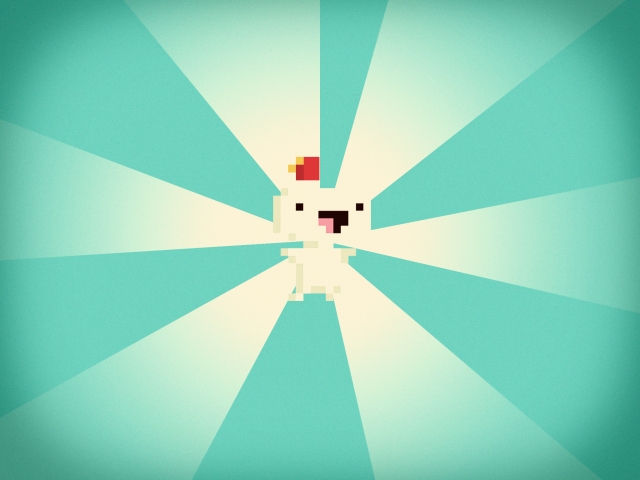
The most disappointing part of this whole saga is that it’s not just isolated to this incident. Fish has a long standing history of abuse over the production time of FEZ, but Treyarch design director for Black Ops 2, David Vonderhaar, had no such history. The threats this man received against his life and families lives, are, frankly, downright disgusting and do nothing to help the stereotyping that the Call Of Duty community gets on a regular basis.
Mr Vonderhaar tweeted about changes implemented on a certain gun, to which he received nothing but hate and vitriol. The tweaks to the guns were so minimal that only the most devoted CoD fan would have noticed. Does this deserve the threat of violence and death against a man and his family? I think we can all agree that it does not.
These, in my opinion, were some of lowest points of 2013 and we as gamers should be wondering what kind of community it is we want to foster. Is this acceptable behaviour for anyone within our growing pastime to exhibit? Games constantly seem to be going through a fight to be seen as an art form, but with behaviour like this, it’s no wonder we’re still seen as a bunch of snotty nosed kids, with too much freedom to express our opinions.

The Growth Of Narrative
This year has been greater than ever for the idea of narrative within the interactive worlds we so frequently find ourselves visiting. The evolution of gameplay is set to stagnate with iterative versions of franchises being released year on year. There are exceptions of course, some notable series have taken a turn away from their standard fare such as Assassin’s Creed, while still managing to keep the core crowd interested.
This has meant tricky questions for several developers, who have been forced to try and find inventive ways of keeping the player constantly engaged. Games appear to be surpassing their constant need to imitate Hollywood at every turn - this trend is far from about to die out - but with games like That Game Company’s Journey showing off minimal narrative elements, and in its place a reliance on the players’ want to explore and understand the world they’re thrown into, games are starting to play to their strengths.
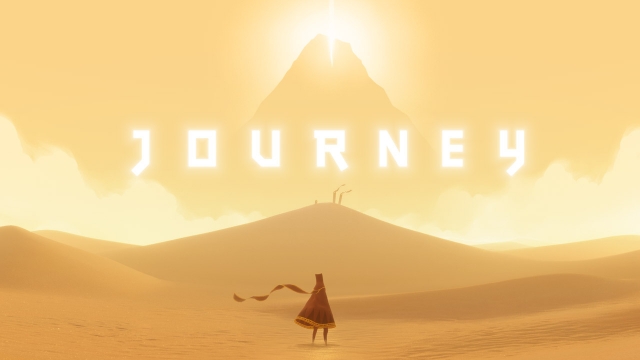
There are plenty of examples of Hollywood storytelling though. Beyond: Two Souls was released at the end of this year and relies very heavily on the tried and tested scene method of story development. The game jumps from moment to moment explaining to players snippets of Jodie’s (the main character) life, one incident at a time. The most notable difference with traditional storytelling is its non-linear timeline events. This means you’re experiencing Jodie’s life in an order that just manages to keep enough from you, while still enough to make the story interesting.
This does evoke memories of Tarantino-esque films and things movies have been doing for a long time now, so should we really be celebrating this? Is it not just something that should be happening as the art form progresses? Well other developers have begged to differ. With the release of Brothers: A Tale Of Two Sons, a Swedish filmmaker by the name of Josef Fares managed to show us that maybe we shouldn’t be looking at the film industry for inspiration, but instead looking at what it is games do that no other medium does.
With the innovative mechanic that has you controlling two players at the same time both assigned to different analog sticks and buttons, the way the game played out felt really personal and hit home in a way few other games have managed. It’s very difficult to explain just how the mechanics manage to influence the narrative, but Brothers manages this fantastically.
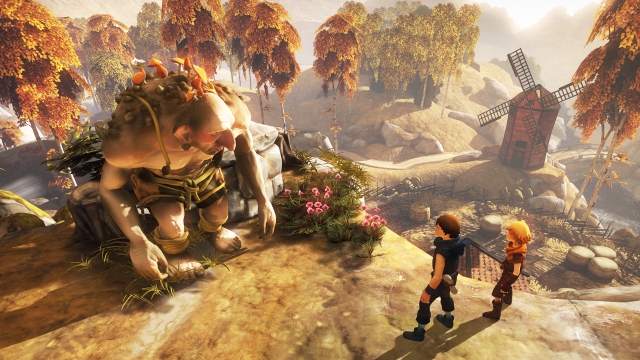
Then we also have examples of narrative moving forward just in the design of the story itself. Bioshock: Infinite was always an anticipated title, the team that gave us Rapture in 2007 returning with another fascinating city to explore. This time with a populace as well, something absent from the underwater former utopia of the first game. We get to see Columbia, the city in the clouds, at its peak and in all its beauty which already changed the way the story would play out from this setting to the last.
The very simple addition of a companion could have ruined the otherwise perfectly crafted Bioshock experience, making the game a boring extended babysitting session. With the integration of Elizabeth, your disney-esque trapped princess in the tower, Irrational Games managed to thread her not only into the gameplay seamlessly, never getting in your way or slowing your progress, but also managed to build a whole narrative around her and her powers.
This was something that was, frankly, a joy to behold. The story managed to save all its large twists till the end and still have you guessing, with an ending that polarised audiences, they still achieved what many games fail to. Irrational kept the player guessing constantly and making them want to play just to see what happened, leaving many with their jaws firmly attached to the floor for the last ten minutes.
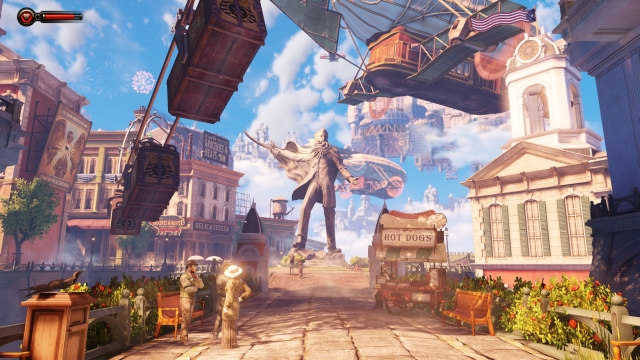
With a lot of games changing the way they manage their storytelling and trying to integrate the story into the mechanics, the end of this generation is looking like a promising one. The biggest concern is that we do this every console generation. We get innovation and new techniques to deliver the player a more fulfilling experience, which then manages to get lost in the fanfare and excitement of a new console generation, as developers try to figure out the new systems.
Shadow of The Colossus was released relatively close to the end of the PS2 lifecycle, showing almost effortlessly how easily you can communicate emotion with a player. The following generation has taken almost it’s entire lifetime to get back to that state of narrative design, there is a sense of déjà vu setting in with next gen release titles. Killzone appears to be another lifeless shooter with a skewed idea of giving its long term villainous space Nazis feelings. Ryse seems to be more centered around the life of a soldier and his struggle to understand his role in serving his country/empire and coming to terms with what that may mean. The cliches seem to be endless.
We seem to have nothing that shows the huge steps taken forward at the end of the last generation. In fact one of the few studios who transcended its former trend for big action games in favour of a more story driven experience, Naughty Dog, has since announced another Uncharted game is in the works.
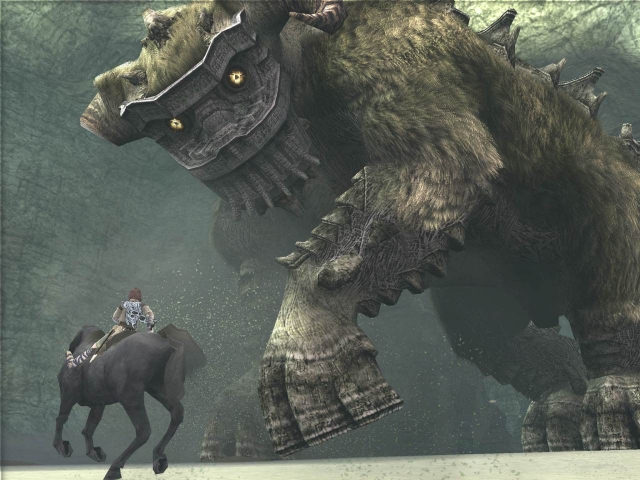
It seems that the industry never learns. We can only hope this trend is short lived and that this console generation’s hardware lives up to its promise of being easy to program for and understand, so we can get the experiences we’ve already seen our industry is capable of, from many of the brightest minds it has to offer.








COMMENTS